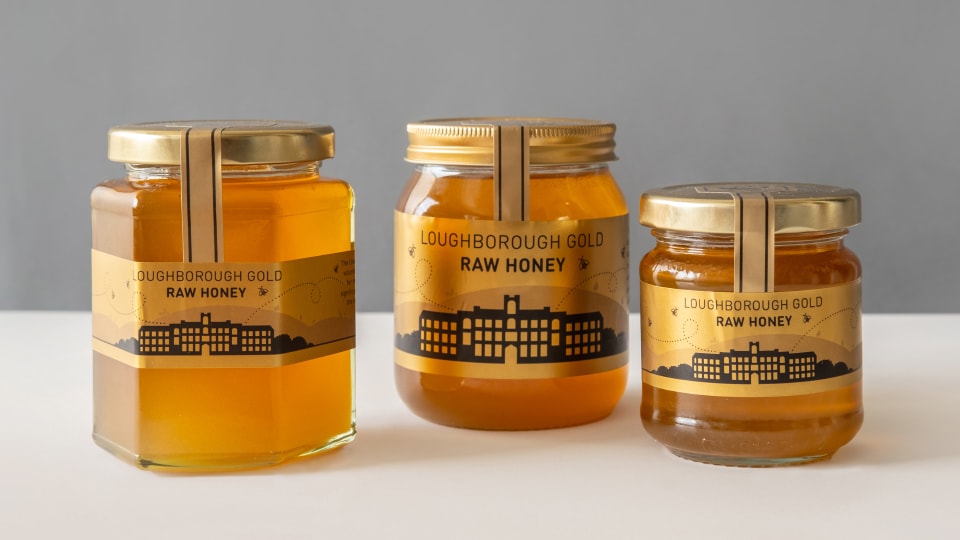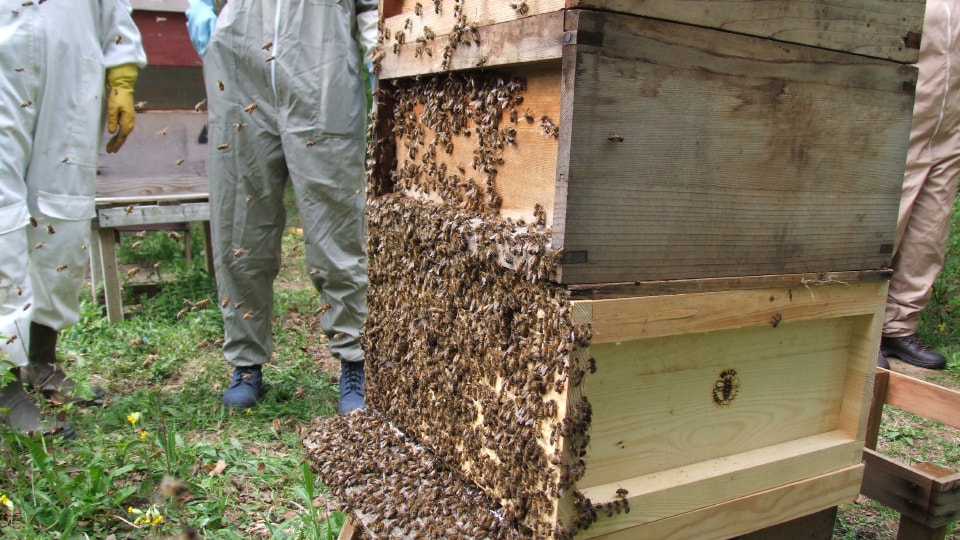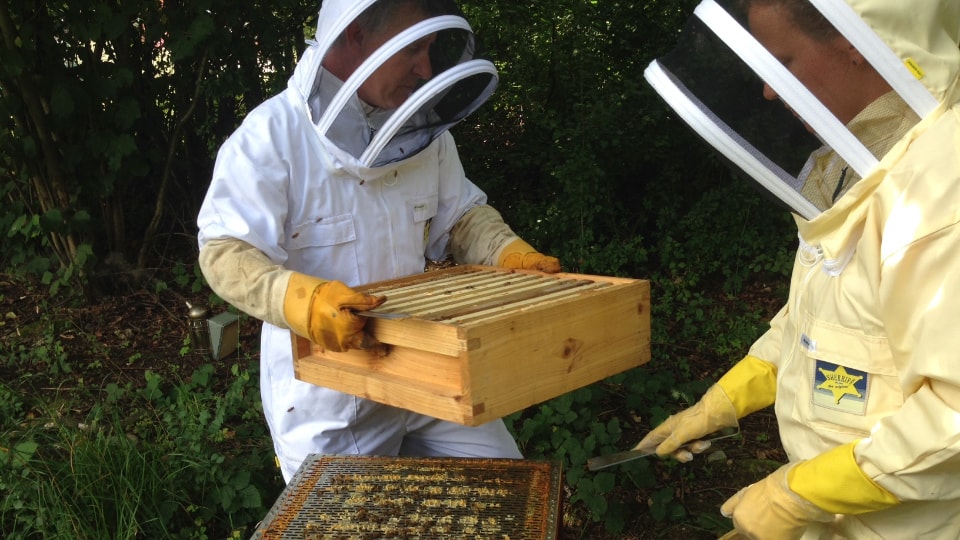Loughborough Gold

About the Apiary
The University apiary was set up in 2013 and has gone from strength to strength. It is home to between 6 - 10 colonies of honeybees. The project is funded by the University Estates & Facilities Management Service, in line with the Biodiversity Action Plan. Our Biodiversity Action Plan, and associated work we do supports the University’s Strategic Theme of Climate Change and Net Zero.
About Bees
Bees pollinate around one third of the food we eat and 80 per cent of flowering plants. The bees are a welcome inhabitant of the campus helping to pollinate our fruit, plants, and trees. Bees help to pollinate the fruit, nut trees and edible plants along footpaths and cycle paths across the university campus that belong to our Fruit Routes installation. Maintaining an on-campus apiary helps with the survival of campus green spaces, through pollinating perennials, trees, bulbs, and keeping wider species and habitats healthy. In return, the campus offers year-round forage for the bees.
The primary aim of the apiary is to support the declining bee populations and ensure the health and wellbeing of the bees in our care. If enough honey is produced each year, then a harvest is taken. The whole process is undertaken by the volunteers from comb to jar. A sale is held annually through the Creative and Print Online Shop.
Want to get involved?
The apiary is supervised by the Apiary Manager and run with volunteers as an educational facility. These are made up of staff, students, and members of the local community.
We are currently looking for volunteers to help with the management of the bees, as per below roles:
Apiary Supervisors – this role is open to volunteers who have completed one year of volunteering and have undergone formal training. Supervisors will initially support the Apiary Manager, but once they have demonstrated practical application of the training, they may be required to lead on inspections in the absence of the Apiary Manager. The University will pay for the formal training. Annual Bee Registration will also be funded if the volunteer only works with the campus bees. Apiary Supervisors are expected to support a minimum of 2 weekly inspections per month during the peak season (May – October)
Apiary Volunteers – this is open to anyone who has no experience and would like to support the trained Supervisors and Managers. Ideally volunteers would attend 2 weekly inspections per month during the peak season (May-October), but this is voluntary.
All volunteers will have access to University PPE and therefore there is no expense in this regard. All inspections require a minimum of 2 persons to be present and take about 2 hours. Volunteers are rewarded with honey from that extracted at the end of the season proportionate to the support contributed and the volume of honey harvested.
If you would like to learn more about volunteering at the University Apiary, please email sustainability@mailbox.lboro.ac.uk
Why not celebrate World Bee Day on May 20th by building a bee home in your garden, or planting pollinator friendly seasonal plants? Lavender is a great summer choice!
What do I do if I see a swarm?
Firstly, don’t panic! Contact the FM Helpdesk to find out what to do.
United Nations Sustainable Development Goals:
Loughborough University is a proud signatory of the United Nation’s Sustainable Development Goals (SDG's), having signed the declaration in 2020. Our campus biodiversity work can be mapped onto the below SDGs:
- Goal 4: Quality education
- Goal 9: Industry, innovation, and infrastructure
- Goal 11: Sustainable cities and communities
- Goal 13: Climate action
- Goal 15: Life on land
- Goal 17: Partnerships for the goals
Find out more about our commitment to the SDGs.


